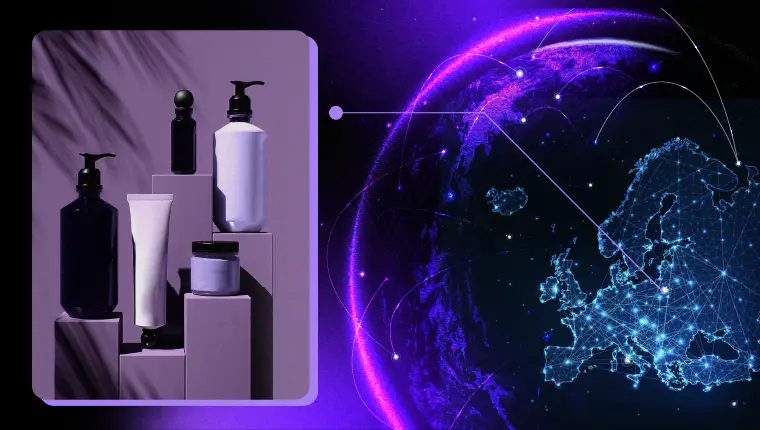The Indian consumer market is rapidly growing and holds tremendous potential. With over 1.3 billion people, India has the world’s second-largest population.
According to recent reports, consumer spending in India reached nearly $1.5 trillion in 2017 and is expected to further grow at a compound annual growth rate of nearly 12% over the next 5 years.
Growth Potential
The Indian consumer market shows tremendous growth potential in the coming years. According to industry analysis, the market is projected to reach $6 trillion by 2030, making India the 3rd largest consumer market behind only the US and China.
India has a large population that is rapidly urbanizing. The middle class is expected to grow from 50 million households today to 200 million households by 2030. This expanding middle class will drive increased demand for consumer products across all categories from medical devices, cosmetics, beauty & personal care products, and food and beverage to electronics and automobiles.
E-commerce is also fueling growth, with the Indian e-commerce market projected to grow to $200 billion by 2026. India will have over 1 billion smartphone users by 2026, enabling digital commerce and payments.
With a growing population, rising incomes, and increasing internet and smartphone penetration, India represents an extremely attractive consumer market for companies looking to expand globally. Seizing the growth opportunities early will be key, as the consumer market is estimated to surpass $1 trillion by 2025. Positioning brands and products to align with Indian consumer preferences and values will be vital.
Challenges of Entering India
India presents several unique challenges for companies looking to enter and expand in the market. Some of the key challenges include:
Cultural Differences
India has a rich cultural heritage that is vastly different from Western cultures. Companies need to understand cultural norms, traditions, and sensitivities. For instance, vegetarianism is widespread due to religious beliefs. Marketing campaigns and products should be tailored accordingly.
Language Diversity
India has 22 official languages, with Hindi and English being the most common. However regional languages dominate different states. Companies must adapt branding, marketing, packaging, manuals, etc. to connect with local audiences. Failing to do so can lead to ineffective communication.
Regulatory Complexities
India has complex regulations governing product testing, certifications, licenses, trademarks, duties/taxes, etc. Navigating these nuances requires deep expertise. Non-compliance can lead to legal issues. Hiring local consultants is key.
Infrastructure Gaps
While India is rapidly developing, infrastructure like cold storage, roads, electricity, etc. remain inadequate in parts. Supply chain and distribution strategies should factor into these limitations.
Economic Disparities
Income levels vary widely between urban and rural areas. Pricing and positioning should align with purchasing power across regions. Focusing only on high-end segments will limit market reach.
Using the Power of an Indian Authorized Representative (IAR) for Market Entry to Expansion
An Indian Authorized Representative (IAR) provides invaluable benefits for companies looking to launch products in India. Having a local partner that understands the market landscape is critical to success. An IAR can provide the following key services:
Market Intelligence
An IAR has extensive knowledge of the Indian consumer market. They stay up-to-date on the latest trends, preferences, and insights. An IAR can provide guidance on product positioning, competitive analysis, pricing strategy, marketing messaging, and more.
Regulatory Support
India has complex regulations around product registration, testing standards, labeling, and import procedures. An IAR will handle product registration with agencies, ensure proper documentation and certification, and liaise with regulatory bodies on the company’s behalf. This removes a major obstacle to market entry.
Distribution Services
Distribution and sales channels in India vary greatly by product sector and region. An IAR has existing relationships with national, regional, and local distributors. They can get products placed in appropriate retail outlets, online marketplaces, and sales channels. This enables quick go-to-market.
Having an IAR provides end-to-end support and significantly de-risks market entry into India. Their localized expertise and connections are invaluable for international companies looking to succeed in this complex market. An IAR paves the way for faster product launches, higher sales volumes, and expanded brand presence.
IAR Expertise – Legal Representation and Compliance
Entering any new market comes with legal and regulatory challenges. Companies looking to launch products in India often struggle with complex compliance requirements. An Indian Authorized Representative (IAR) can provide invaluable expertise to ensure full legal compliance.
Some of the key areas where an IAR provides legal and regulatory support include:
– Registration of products with relevant authorities like the Central Drugs Standard Control Organization (CDSCO) for pharmaceuticals or the Bureau of Indian Standards (BIS) for certain electronics and machinery. The registration process can be lengthy and complex without local knowledge.
– Understanding labeling and packaging regulations which differ across states and product categories. The labels may need to be translated into local languages and display certain mandated information.
– Navigating import restrictions and special import duties that apply to some products. The tariff codes and customs procedures can be confusing for outsiders.
– Advising on any special permits required for the sale and distribution of select product categories like pesticides or explosives.
– Keeping up with frequent regulatory changes and filing any updated compliance documentation. The rules are constantly evolving.
– Representing the company in any regulatory audits or inspections. The IAR serves as the authorized point of contact.
Market Expansion Strategies
Expanding into the Indian market requires careful consideration of pricing, partnerships, and customization. Companies must balance offering affordable prices while remaining profitable. Partnering with local Indian companies can provide critical insight into consumer preferences and customs. Some degree of customization and localization is often needed to succeed in India.
Pricing is a major factor, as cost-sensitive Indian consumers want quality products at reasonable prices. Companies must determine an optimal price point – not too high to deter customers, but not too low to undermine profits. Market research helps set prices aligned with consumer expectations.
Forming Partnerships with Indian companies helps foreign brands understand consumer behavior, cultural nuances, and local business practices. Indian partners can advise on tailoring offerings, like creating vegetarian options for foods or modest styling for apparel. These collaborations also aid distribution and marketing.
Customizing for Indian tastes demonstrates a commitment to the market. Examples include providing sari designs, using local spices in foods, or enabling Indian language selections on apps and websites. Products should balance globalized features with local preferences.
Geographical Differences
India is a large and diverse country with significant differences in consumer behavior across regions. Some key geographical considerations include:
– North vs South: Northern states like Punjab and Haryana tend to be more prosperous and open to new brands and products. Southern states like Tamil Nadu and Kerala have strong local loyalties but also embrace technology and innovation.
– Urban vs Rural: Big cities like Mumbai and Bengaluru represent more affluent and experimental consumers. Rural areas tend to be more traditional but are an enormous, untapped market.
– East vs West: Eastern states like West Bengal follow more traditional norms. Western states like Gujarat are centers of enterprise and business.
– Climate: Hotter regions appreciate products suited to warm weather. Colder mountainous areas have different needs.
– Infrastructure: Tier 1 cities have modern retail while smaller towns rely more on traditional trade.
– Language: Different regions have different main languages, requiring localized marketing.
– Income: Per capita income varies widely, impacting purchasing power.
Understanding India’s geographical diversity allows brands to tailor products, pricing, promotions, and messaging for stronger connections with consumers in each region. A nuanced segmentation strategy is key.
Why Taevas Life Sciences?
Taevas Life Sciences is an ideal partner for companies looking to enter and expand in the Indian market. With over 5 years of experience and a presence in 19+ countries, Taevas provides end-to-end market entry services and regulatory support to global life sciences companies.
Expertise and Experience: The Taevas team has extensive experience in medical device, food & dietary supplements, cosmetics and personal care as well as pharmaceutical and healthcare industries. We leverage our experience and connections to provide strategic advice and regulatory guidance.
Comprehensive Services: Taevas offers a full suite of services including post-regulatory affairs consulting, compliance support, import/export licensing, product registration, documentation, and local distribution/logistics. This “one-stop shop” approach simplifies market entry.
Established Relationships: Over the years, Taevas has built an extensive network of relationships with regulators, distributors, policymakers, brand custodians, marketers, healthcare professionals, channel partners, and other key stakeholders. These connections facilitate effective market access and expansion.
Proven Track Record: Taevas has helped over 300 global companies successfully enter and grow in India as well as globally. Our experience launching hundreds of products provides confidence that can enable success.
In-House Team: With an experienced In-house team, Taevas provides on-the-ground support nationwide. Our local team offers services tailored to India’s diverse markets.
Entering the Indian market presents tremendous growth opportunities, but also complex challenges around regulations, distribution, and cultural nuances. Partnering with the right Indian Authorized Representative can be the key to successfully launching and scaling a business in India.
To learn more about how Taevas can help you capitalize on India’s growth, visit www.taevasglobal.com or schedule a free consultation call at contact@taevasglobalcom.
With the right local guidance, your business can thrive in one of the world’s most promising markets. Partner with Taevas to successfully enter India and achieve your full potential.




